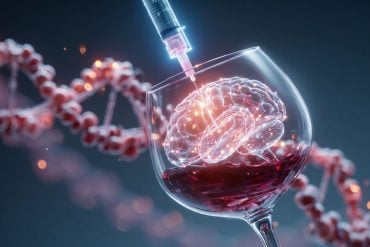Summary: Increasing levels of the Klotho protein can slow aging and improve health across multiple systems. Scientists showed that mice treated to produce more secreted Klotho (s-KL) had better muscle strength, bone density, cognitive function, and even lived 15–20% longer.
The treatment promoted neuron growth, reduced muscle fibrosis, and protected bones, especially in females, suggesting widespread benefits. While human applications are still being developed, the findings point to s-KL as a promising future therapy to enhance healthy aging.
Key Facts:
- Longer Lifespan: Mice producing more Klotho lived 15–20% longer.
- Stronger Body: Treated mice showed better muscle, bone, and cognitive health.
- Therapy Potential: Researchers aim to develop Klotho-based treatments for aging.
Source: UAB
As we grow older, it is natural to lose muscle and bone mass, leading to greater frailty and a higher risk of falls and serious injuries.
Cognitively, neurons progressively degenerate and lose connections, while diseases such as Alzheimer’s and Parkinson’s become more prevalent. In a society where the population is steadily aging, reducing these effects is one of the main challenges for research.

Now, in an article published in Molecular Therapy, an international research team led by Professor Miguel Chillón, ICREA researcher at the INc-UAB, has shown that increasing levels of the secreted form of the Klotho protein (s-KL) improves aging in mice.
The team treated young animals with gene therapy vectors that caused their cells to secrete more s-KL. At 24 months of age, roughly equivalent to 70 years in humans, they found that the treatment had improved the animals’ muscle, bone, and cognitive health.
“We have been working with the Klotho protein for some time, due to its therapeutic potential for treating neurodegenerative diseases. In this study, we wanted to see whether s-KL could also be beneficial for healthy aging by examining a broad range of factors”, explains Miguel Chillón.
Mice treated with s-KL lived 15–20% longer, with better physical performance, larger muscle fibers, and less fibrosis, indicating better muscle health. Improvements in bone health were also observed, particularly in females, with greater preservation of the internal bone structure (trabeculae), suggesting a potential protective effect against osteoporosis.
Finally, in the brain, treatment with s-KL promoted the generation of new neurons and increased immune activity in the hippocampus, suggesting possible cognitive benefits.
The viral vector treatment works by introducing copies of the gene encoding the desired protein into the body’s cells, so that they can start producing it on their own. In the mice, these vectors were administered intravenously and directly into the brain to ensure that brain cells also produced s-KL.
“We now have viral vectors that can reach the brain after being administered intravenously, which would make it easier to safely transfer this therapy to humans.
“Another option would be to administer the protein directly as a drug instead of using viral vectors, but we still need to find an efficient way to deliver it and ensure it reaches the target organs,” explains Joan Roig-Soriano, INc-UAB researcher and first author of the article.
The research group had already patented the use of Klotho to treat cognitive deficits, and following this study, three new patents were filed. These patents protect the use of Klotho for treating bone and muscle deficits, as well as for developing therapies aimed at increasing longevity.
“If we can find a viable delivery method, s-KL could make a significant contribution to improving people’s quality of life and helping to build the healthiest society possible,” the researchers conclude.
About this genetics and aging research news
Author: Maria Jesus Delgado
Source: UAB
Contact: Maria Jesus Delgado – UAB
Image: The image is credited to Neuroscience News
Original Research: Open access.
“Long-term effects of s-KL treatment in wild-type mice: Enhancing longevity, physical well-being, and neurological resilience” by Miguel Chillón et al. Molecular Therapy
Abstract
Long-term effects of s-KL treatment in wild-type mice: Enhancing longevity, physical well-being, and neurological resilience
Aging is a major risk factor for pathologies including sarcopenia, osteoporosis, and cognitive decline, which bring suffering, disability, and elevated economic and social costs. Therefore, new therapies are needed to achieve healthy aging.
The protein Klotho (KL) has emerged as a promising anti-aging molecule due to its pleiotropic actions modulating insulin, insulin-like growth factor-1, and Wnt signaling pathways and reducing inflammatory and oxidative stress.
Here, we explored the anti-aging potential of the secreted isoform of this protein on the non-pathological aging progression of wild-type mice.
The delivery of an adeno-associated virus serotype 9 (AAV9) coding for secreted KL (s-KL) efficiently increased the concentration of s-KL in serum, resulting in a 20% increase in lifespan.
Notably, KL treatment improved physical fitness, related to a reduction in muscle fibrosis and an increase in muscular regenerative capacity. KL treatment also improved bone microstructural parameters associated with osteoporosis.
Finally, s-KL-treated mice exhibited increased cellular markers of adult neurogenesis and immune response, with transcriptomic analysis revealing induced phagocytosis and immune cell activity in the aged hippocampus.
These results show the potential of elevating s-KL expression to simultaneously reduce the age-associated degeneration in multiple organs, increasing both life and health span.







